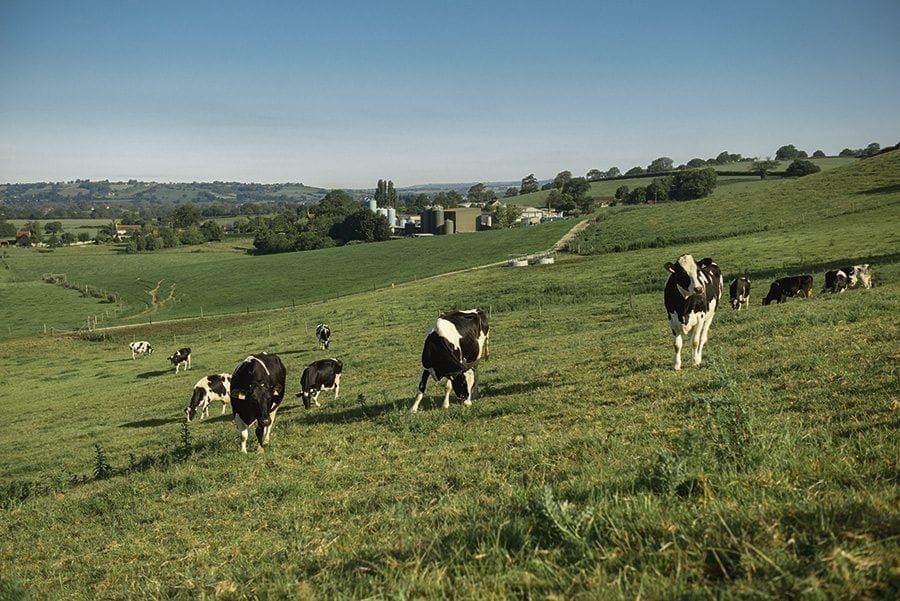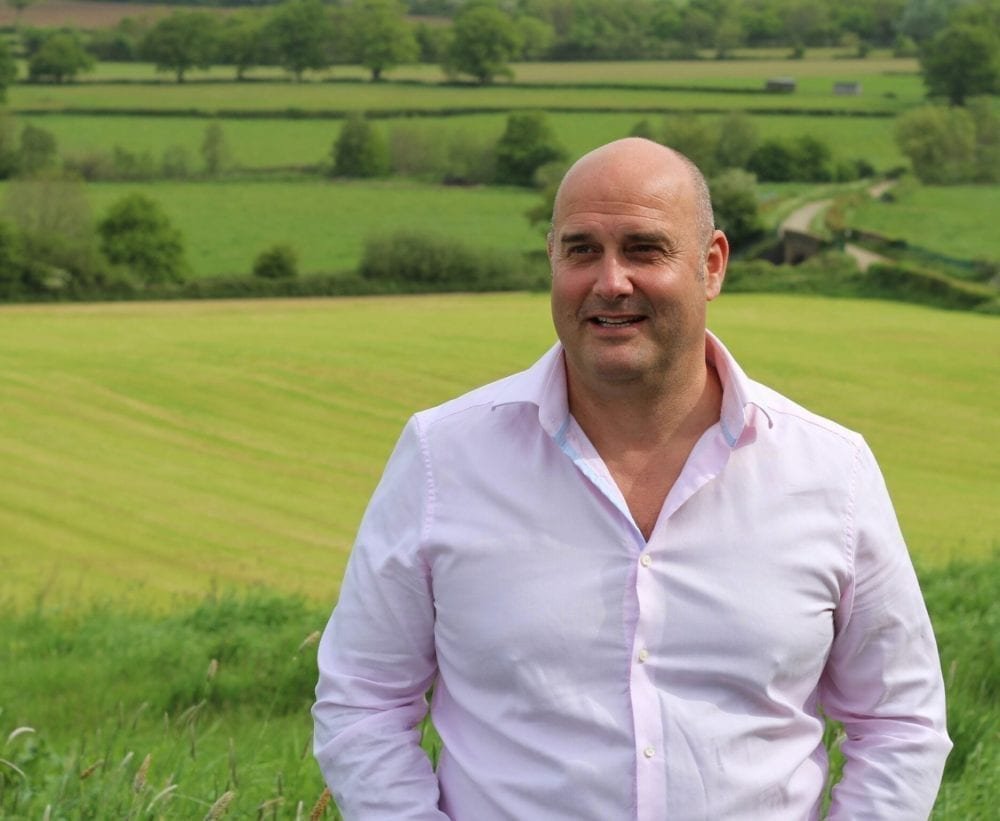This article first appeared in our summer ’18 issue of MyGreenPod Magazine, The Natural Revolution, distributed with the Guardian on 03 Aug 2018. Click here to subscribe to our digital edition and get each issue delivered straight to your inbox
The UN predicts the world population will reach 8.6 billion in 2030, 9.8 billion in 2050 and 11.2 billion in 2100. While most of us won’t be around to experience life with 11.2 billion neighbours, we’re likely to be around when 9 billion human mouths need to be fed.
Eating insects, going vegan, improving food storage and transportation and making more creative use of leftovers are just some of the countless ideas advocated as possible solutions. But for Richard Clothier, managing director at Wyke Farms, it has to start with animals and, crucially, farming.
‘Much of the world’s growing areas can only be cultivated through animals, particularly the more extensive mountainous or dry, semi-desert regions’, he tells us. ‘A lot of the growth in population and affluence will be in Asia and Africa. 300 million Indians will join the middle classes in the next 10 years; they will eat more meat and dairy products, consume more energy and use more resources.’
A silver bullet?
For Richard, the only way feasible way we’ll be able to thrive as a community of 9 billion is by accepting that diets containing meat and dairy are here to stay, and make sure farming ‘does what it can to mitigate climate change wherever possible, with minimal use of the Earth’s resources.’ Telling everyone to ride a bike won’t cut pollution, he says, but developing electric cars could be the silver bullet that does. In the same way, farming needs to craft the silver bullet that will reduce global greenhouse gas emissions. ‘We have to do what we can’, he says.
Richard is already doing a lot; he pursues what he calls ‘practical environmentalism’ at Wyke Farms, the 150-year-old family farm in the heart of Somerset’s Brue Valley. The entire working farm is powered by solar and biogas generated from otherwise useless farm and dairy waste.
Natural fertilisers
Richard’s commitment to Wkye Farms’ ‘100% Green’ project has been rewarded: it’s the first dairy business to achieve triple certification to the Carbon Trust Standard for reducing carbon, waste and water.
Wyke Farms’ biogas plant has saved over 5m kilos of CO2 and £2m in energy costs, while making use of the 75,000 tonnes of waste that would otherwise be carried away each year. Local farmers who use the digestate from Wyke Farms’ biogas plant also save 1.5m kilos of CO2 annually.
For Richard, using anaerobic digestion (AD) to remove methane from all farm slurry, manure and waste is a no-brainer: it stops the methane emissions from breaking down in the fields and conveniently generates heat and green electricity as by-products.
‘We need to be using the waste from AD and using the latest precision farming methods to allow this natural fertiliser to replace artificial nitrogen, which in environmental terms is like spreading crude oil on the land’, Richard tells us.
 Play Video about This Rock Might Just Save The World
Play Video about This Rock Might Just Save The World Play Video about Play 2 hours of rock
Play Video about Play 2 hours of rock Play Video about Play 2 hours of brook
Play Video about Play 2 hours of brook Play Video about Play 2 hours of sheep
Play Video about Play 2 hours of sheep












































